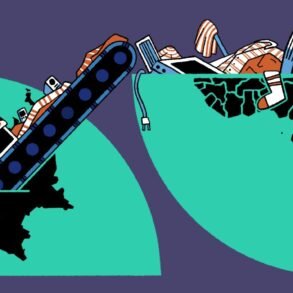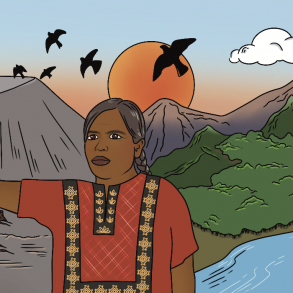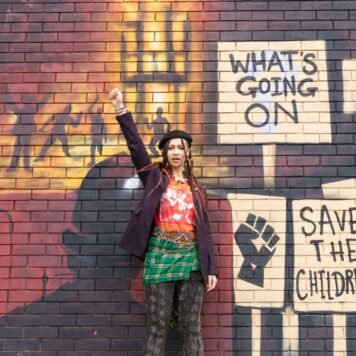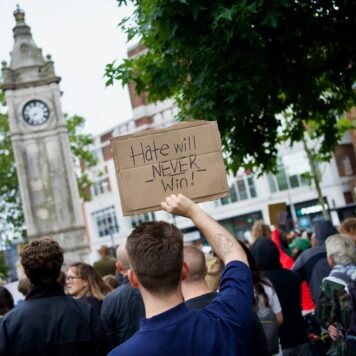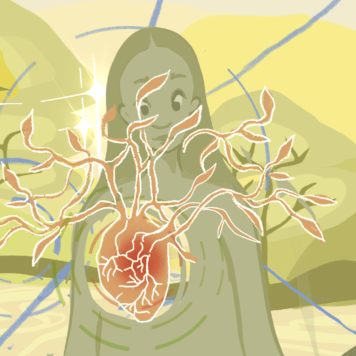The formal definition of environmental racism is “environmental injustice that occurs within a racialised context both in practice and policy”. It was coined in 1982 by Dr. Benjamin Chavin, an African American civil rights activist who worked with researchers to collate evidence of environmental racism in the US. These findings played a significant role in the Black Liberation movement and exposed how racism and environmental issues are intrinsically linked.
As a climate activist, I saw the world wake up to this issue in June as the Black Lives Matter hashtag and widespread peaceful protests saw people slowly realising how institutions can and are weaponising the environment against marginalised communities – and, in particular, the Black community.
A wave of grassroots mobilisation saw people online demanding corporations to provide public statements about their stance on anti-racism at the risk of these brands being boycotted. As a result of global peer pressure, one by one these brands slowly panic posted unsatisfactory corporate responses ‘detailing’ their position against any form of discrimination on their social media platforms, resulting in essentially empty words and false allyship. This rang particularly true when it came to companies with a track record of environmental violations and climate injustice: the same giant corporations that have been profiting off Africa’s pain for years were now posting a black square.
Environmental racism is truly a layered discourse. It is more than identifying the obvious environmental discriminations such as air pollution, water pollution and lack of access to open spaces. It is about the powers, contextual influences and motivations behind these occurrences. Who gets to decide which community has access to toxic-free environments? Environmental racism has severe impacts, both explicit and implicit, on the welfare of the affected communities.
These questions have been asked in Nigeria for decades. It is a geography in which global capitalism and environmental racism is vividly clear – and accountability is finally being called for. In the recent Do No Harm report written by Friends of the Earth Europe, there are findings of human violations in African countries caused by big oil giants such as Shell. Supreme court hearings will finally be held In Nigeria regarding these crimes and atrocities committed by Shell in the Niger Delta, an integral part of Nigeria’s environment which supplies drinking water, food and supports the livelihoods of many Nigerians.
Shell has not fully addressed these crimes due to legal loopholes, leaving communities with permanent damages to their environment and their health. Shell is a Dutch oil company with headquarters in the Netherlands and subsidiary companies that take the brunt of the cases brought to them by Nigerian environmental activists. Shell’s inactions about their environmental violations in Nigeria is a common polluting industry tactic that financially and morally benefits the company, therefore avoiding total accountability.
Locals in the region have reported that the fish they usually eat tends to be covered in the same oil which has polluted their rivers. Due to broken oil pipelines, gas flaring is a byproduct leading to making the local communities vulnerable to getting burnt and exposing them to air pollution. With recent events, concerning reinforced police brutality in Nigeria,it is important to understand the link between European oil companies’ non-EU operations and the militarisation of the state.
In the early 90s, Ken Saro-Wiwa, a prolific Nigerian writer, spent most of his time defending Ogoniland from environmental degradation caused by Shell. He did this alongside Saturday Dobee, Nordu Eawo, Daniel Gbooko, Paul Levera, Felix Nuate, Baribor Bera, Barinem Kiobel, and John Kpuine, and they became known as the Ogoni Nine. Saro-Wiwa was imprisoned without trial for his activism and the military occupied Ogoniland to protect the oil operations and stop the protestors. Shell vilified Saro-Wiwa by making his communities distrust him and blamed him for unsolved murders of four Ogoni chiefs in his community. In 1995, he and the others were unjustly hanged by the military for fighting for environmental justice. After the five attempts to hang Saro-Wiwa, his last words were “Lord take my soul, but the struggle continues.”
The controversial case sparked international outrage and protests. The Nigerian government deployed police troops and army tanks to two oil refineries with fear that people would cause critical damage to the operations. International bodies such as the United Nations and the European Union condemned the executions. The global media outrage focused on the corruption of the Nigerian government but seemed to ignore the invisible hands that drove the fortification of the military: Shell. It was later revealed by two witnesses that they were offered jobs with Shell if they blamed Saro-Wiwa for the unsolved murders in Ogoni.
It is necessary to acknowledge the layers of environmental racism that exist in this case. Shell denied the people of Ogoniland healthy environments, paying fines rather than dealing with the environmental degradation they caused. They never ensured that the pipelines were maintained nor that they were adequate for oil operations. When people called them out and gained legal assistance, Shell did everything to avoid accountability and sabotaged the relationships within the community: all for the sake of keeping their oil safe and profitable.
These operations exist to fund and support the livelihoods of European citizens and the development of European societies, they are not isolated issues that just involve the people of Ogoniland. European industries are complicit in making developing countries inhabitable for the communities that live there. Affected communities’ opportunities and access to human rights are limited and when they have the capacity to challenge the system, they are confronted with the complexity of European bureaucracy. Climate activists in Europe need to call it how it is: neocolonialism.
Are Europeans ready to reconcile with the uncomfortable truth of the foundations of European societies? Are we ready to actively decolonise our livelihoods and sacrifice our comfort in order for people elsewhere to have access to human rights?
The fight for social justice is part of fighting for climate justice. Climate justice does not exist without social justice. As a climate justice activist, I envision a world where processes of decolonisation and restorative justice are actively present in our global communities.
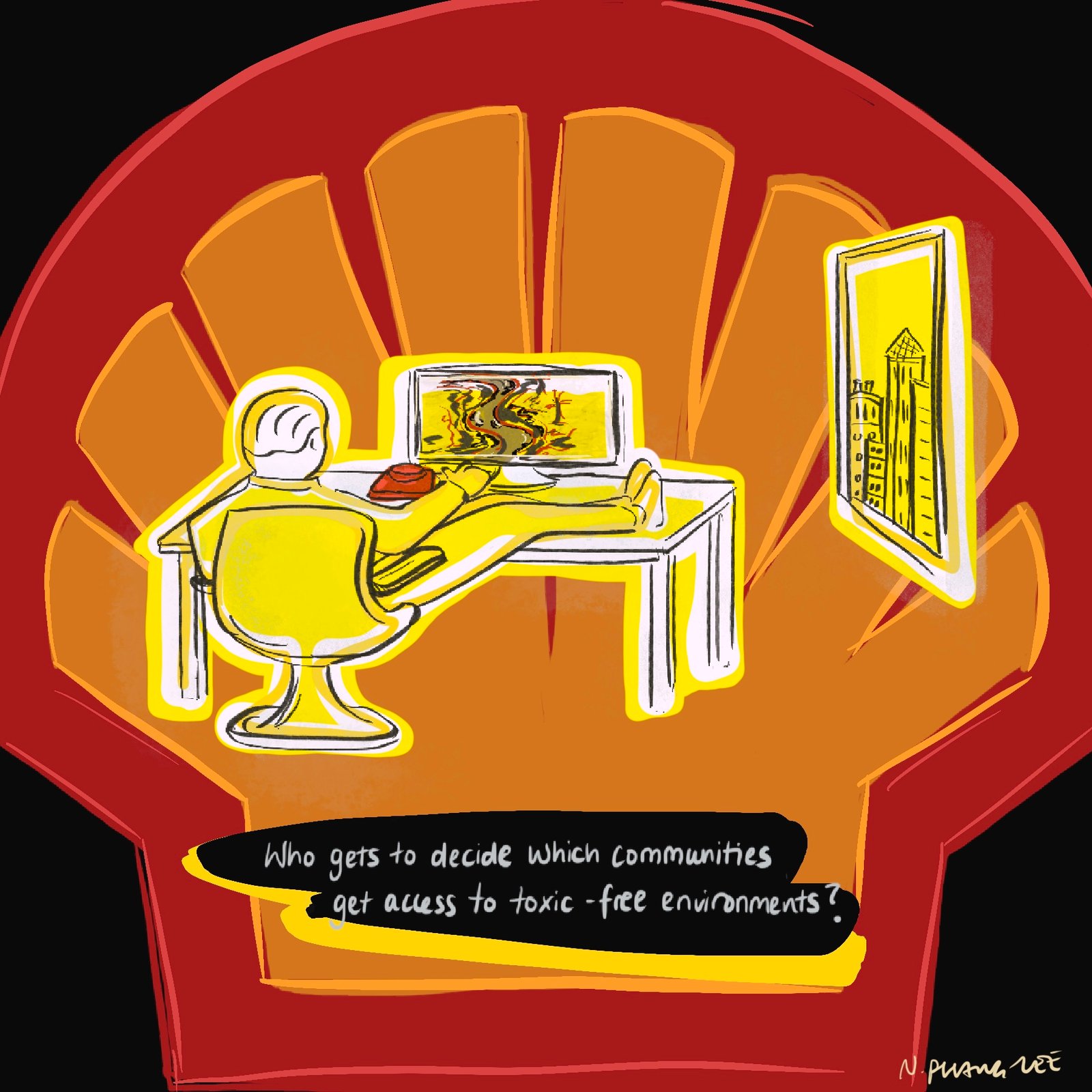
See more of Natasha’s work on her instagram HERE


